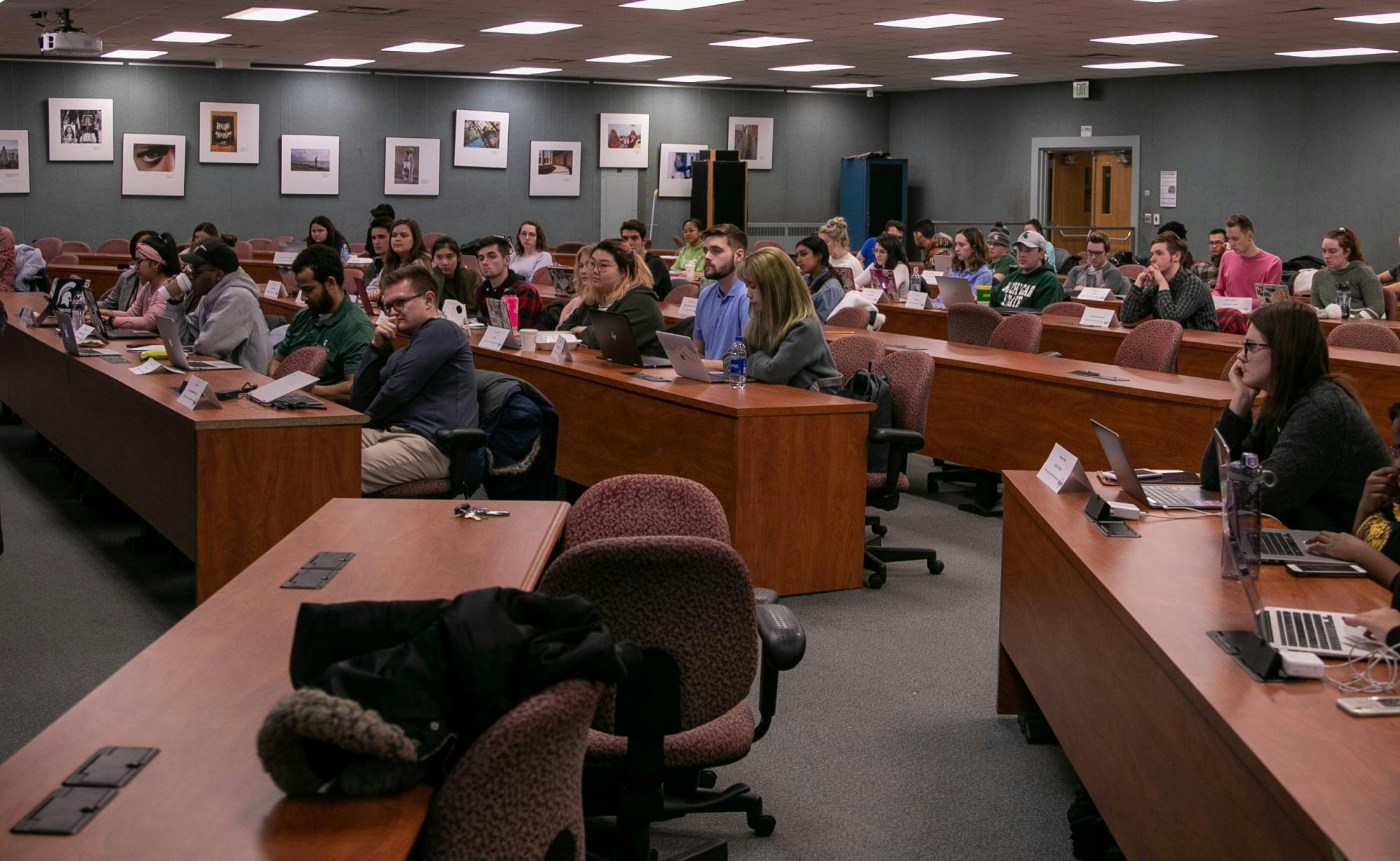The Associated Students of Michigan State University, or ASMSU, discussed uncertainties surrounding fall semester during their final, special summer General Assembly meeting on Thursday via Zoom.
Though Michigan State transitioned to virtual learning with few exceptions Tuesday, many ASMSU services will remain available for students during the fall semester.
Students will still be able to apply for a $300 loan within the first six weeks of the semester. ASMSU Vice President of Finance and Operations Jordan Polk said ASMSU was working to pilot an online loan system to support remote students. However, this isn’t expected to be available until the spring.
Students are also still able rent calculators and receive free legal services and student rights advocates, if requested. However, ASMSU has suspended their iClicker rentals and Safe Ride program for the semester, as well as their print service of USA Today and Lansing State Journal. These subscriptions will still be available digitally.
As for on-campus residence, ASMSU President Abii-Tah Bih said the on-campus population will be reduced to around 2,000 students.
“This number has dropped from about 10,500 students who had signed up to be here,” Bih said. “Immediately after the announcement was made, our ASMSU lawyers received a lot of calls from students who have been trying to cancel their leases. ... On the other side, a lot of landlords have also received calls from students who have signed on-campus to move off-campus. ... So, it has been a very complicated situation.”
Students should have received an email from Vice President for Auxiliary Enterprises Vennie Gore inviting them to submit an application to reside on-campus if needed. Fall housing contracts will be canceled as of Monday, and refunds are being processed.
Bih also said it is unlikely courses will be satisfactory/not satisfactory like they were in the spring.
“During the summer, I advocated for the pass or fail to be extended to the summer,” Bih said. “I had several meetings with administrators, including President Stanley, trying to talk about it and why it’s important. The reason I was given by the former interim provost was that they don't want students to have a disadvantage in the long run. So, if your transcript has ... too many satisfactory/not satisfactory on there, it can actually translate to a disadvantage in the long run, especially when other universities are not offering that option.”
As for international students, Residence Hall Association Rep. Kaitlyn Bolton said those students are top priority when it comes to on-campus availability, along with graduate students with labs, those who don’t have safe or accommodating permanent housing and students who on-campus jobs directly relate to their degree program.
ASMSU also unanimously passed three bills during the virtual meeting. The first bill, introduced by No Preference Rep. Alan Saleh, advocated for reflection rooms to be added into every residence hall to offer students, especially Muslim students, a place to pray and meditate.
“One of the problems I really saw on campus this year was, for Muslim students especially, I noticed that there was not that many prayer rooms on campus,” Saleh said. “There’s a couple, but they’re mainly located in Anthony Hall, Wells Hall and the Law Library. So, it’s not really practical for students when they need to pray. In Islam, prayer is obligatory five times a day.”
Although the bill was originally directed toward Muslim students, Saleh said he wanted to offer a convenient space for students of all religions to meditate and pray.
The second bill, introduced by Communication Arts and Sciences Rep. Jack Harrison, pushed for the MSUPD Traffic Engineer Stephanie O’Donnell to reconsider adding moped parking spots on campus, specifically in Lot 72 in the front of Case Hall and Lot 39 by the Engineering Building.
A previous bill advocating for the additional spots was denied, due to the uncertainty surrounding the upcoming semester and the need to remove faculty parking spaces. However, the new bill stated that students may want to drive mopeds to reduce their risk of contracting COVID-19 by avoid CATA buses and other forms of transit.
The final bill, also introduced by Harrison, called for MSU Culinary Services to increase its reviewal process of removing any of the eight identified allergens from recipes wherever possible.
Harrison said he created this bill after experiencing an allergic reaction after eating at a dining hall and wanted to help other students with food allergies. Though the culinary services list the ingredients on all dishes, Harrison said he wants them to make removing these allergens a higher priority.
ASMSU is set to hold its first General Assembly meeting of the fall 2020 semester at 7 p.m. on Thursday, Sept. 3 via Zoom. Fall General Assembly elections are set to begin on Oct. 5.
Support student media!
Please consider donating to The State News and help fund the future of journalism.
Discussion
Share and discuss “ASMSU discusses fall semester, passes 3 bills in final summer meeting” on social media.








